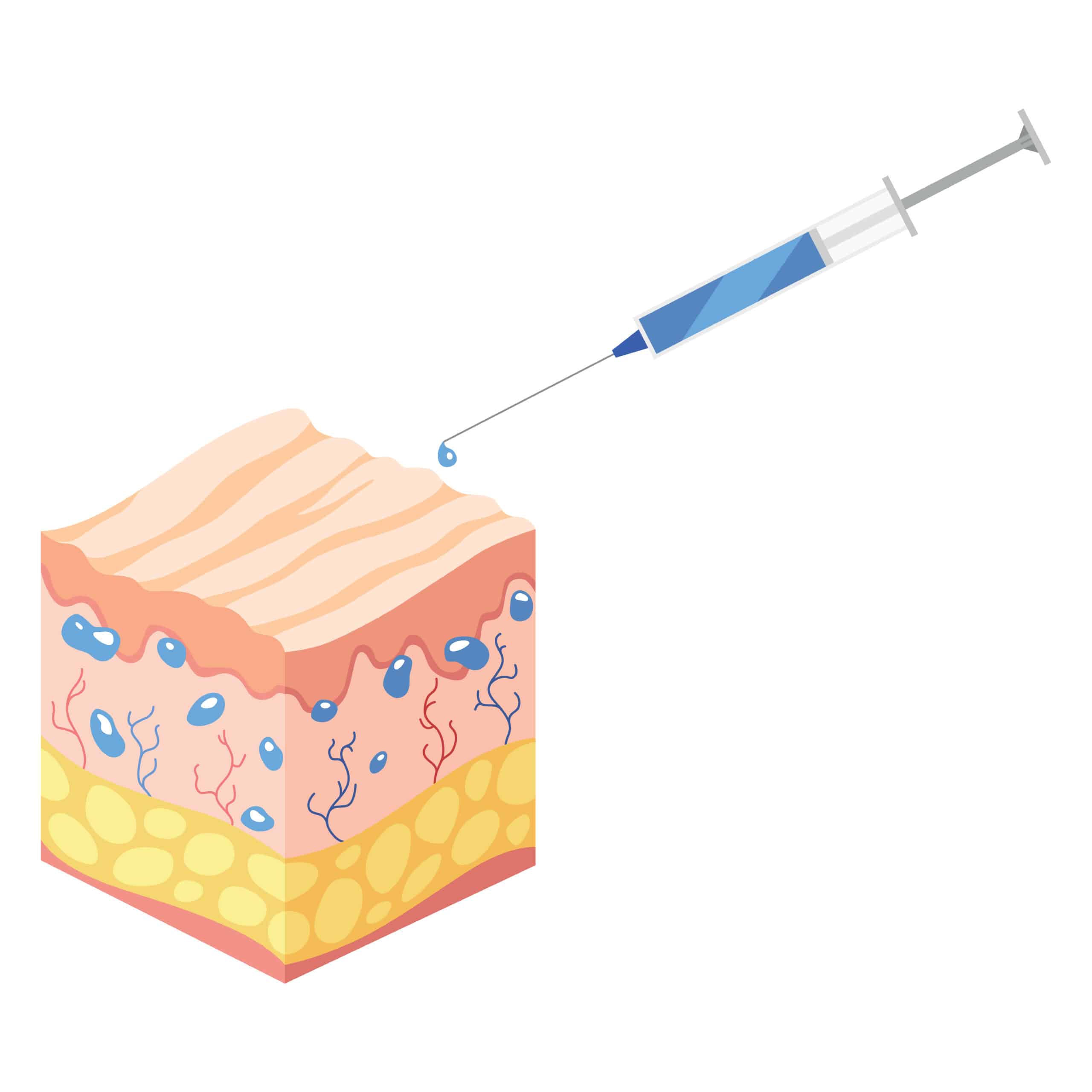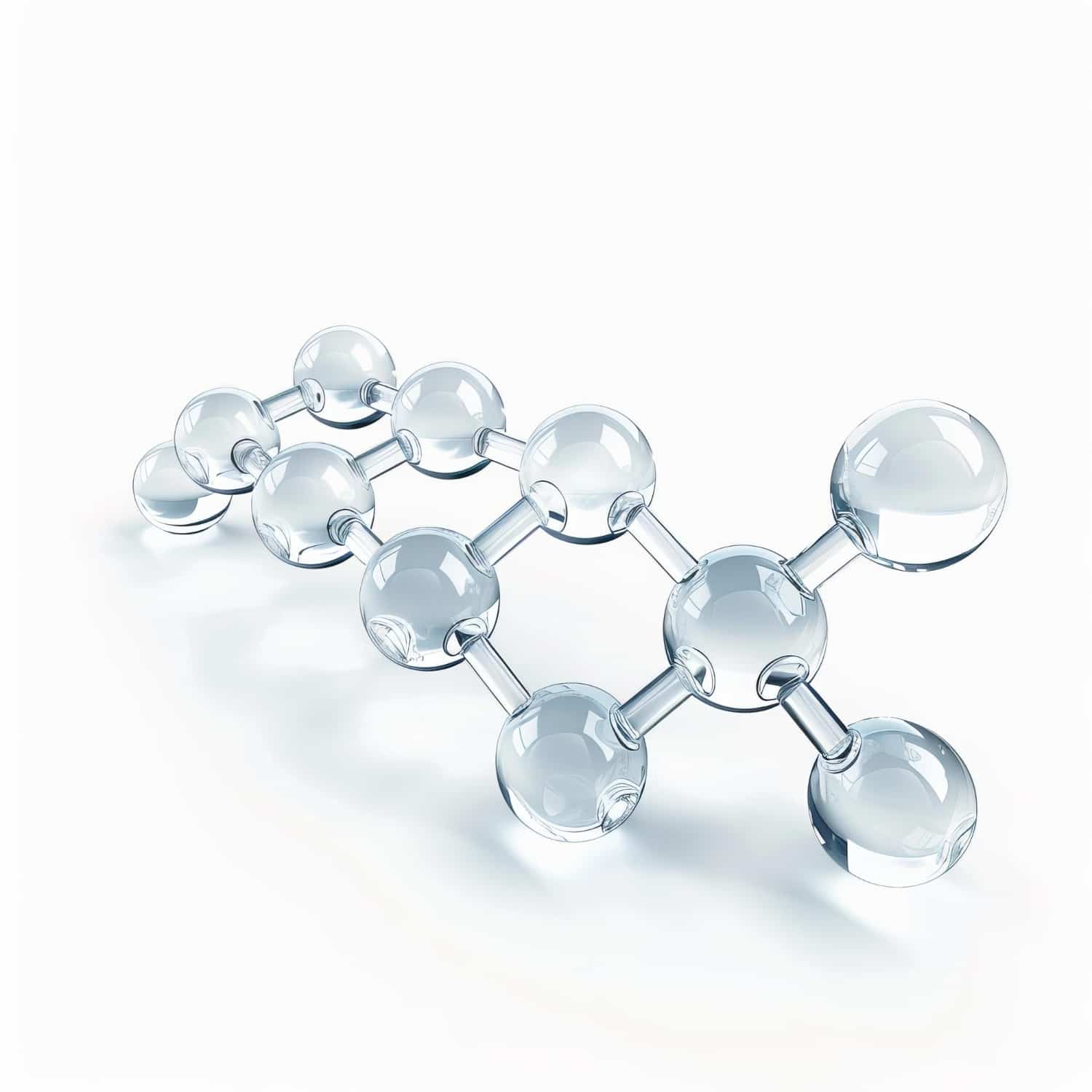Does Hyaluronic Acid Cause Weight Gain? No!
In recent decades, beauty terms have changed from “plumpy skin” or “fair skin” to hyaluronic acid and Hydroquinone. People are more aware and thus more focused towards what they want in terms of beauty treatment. Hyaluronic acid is a very famous skincare ingredient and people use it regularly to retain moisture and hydrate the skin.
Hyaluronic acid is used in serums, fillers and creams. As it can retain moisture, one may worry about does hyaluronic acid causes weight or not. In this read, we will explain the potential effects of hyaluronic acid in very easy words and explain if it causes weight gain or not.
What is Hyaluronic Acid?
Hyaluronic acid is present in our body naturally. It is in our skin, our eyes and in the connective tissues. The main function of hyaluronic acid in the body is to retain water and keep the tissues lubricated so they keep working well. Its natural moisturizing ability gathered the attention of beauty seekers and now it is used in many skin care products that are meant to keep your skin hydrated and well nourished. Hyaluronic acid can retain 1000x more water than its weight. This ingredient is simply amazing and magical.
How Hyaluronic Acid Is Used?
Hyaluronic acid is used in many ways.
- Most commonly, it is used in skin care serums and creams which you buy even in common stores. It aims to improve skin texture and condition by providing hydration and nourishment. This hyaluronic acid doesn’t enter your bloodstream and stays on the skin. So it has no link to weight gain.
- Another very much adopted way to use hyaluronic acid is in injectable form. These injections are used to fill wrinkles and fine lines and make your skin appear younger. The fillers are only injected in the area where they are needed. Usually, on cheeks and around lips to prevent fine lines. These injections go inside your body but don’t impact your body functions in a way that can lead to any weight gain.
- Oral Hyaluronic Acid Supplements are sometimes taken for joint health. They do get absorbed in the body but there is no scientific evidence backing up that will lead to weight gain.
- Hyaluronic acid is also used for hydration support but it doesn’t add calories or fat in the body so it is not directly linked to cause weight gain in the body.
Does Hyaluronic Acid Cause Weight Gain?

Hyaluronic acid isometric. Profile view cube representing skin structure layers icon. Subcutaneous tissue, dermis and epidermis anatomical structure.
Well, the one-word answer is NO! Hyaluronic acid doesn’t cause weight gain. Now let us explain it in detail.
- Water weight is a very common term that we use when talking about losing weight. Hyaluronic acid does retain moisture but it is not the same as weight gain. For weight gain fats, calories and mass are involved. This fat or muscle mass has to be more than needed in the body. The amount of water in the skin or joints doesn’t lead to weight gain.
- Also, injections of hyaluronic acid may cause an increase in the volume of the area where it is injected but it doesn’t contribute to and nor is equal to overall weight gain in the body.
- Third, hyaluronic acid doesn’t penetrate the bloodstream. They stay on the upper surface of the body so they cannot impact weight gain.
- Also, if you get any swelling after hyaluronic acid injections, swelling doesn’t equal weight gain. Swelling is not a permanent condition like weight gain.
- Hyaluronic acid has no calories or nutrition that can lead to weight gain.
- Finally, Hyaluronic acid contributes to muscle and joint health. It doesn’t interfere with metabolism so it can have no impact on weight loss or gain in the body.
What To Think If Hyaluronic Acid Seems To Cause Weight Gain?
Well, we have proven our point that technically, hyaluronic acid cannot impact your weight gain. If you think you are gaining weight,
- Consider your lifestyle. Sometimes you may eat less but poor lifestyle choices can impact your metabolism and increase weight.
- For weight gain to occur, you must have a calorie surplus in your body. Hyaluronic acid in any form doesn’t contain calories.
- Your weight gain can be because of hormonal factors. Any hormonal imbalance can lead to water retention in the body which can look like a weight gain. It has nothing related to hyaluronic acid.
- Some women can retain water in the body during menstrual cycles. This can lead to temporary bloating that can look like weight gain. This is also not related to hyaluronic acid.
Are There Any Side Effects Of Hyaluronic Acid That Can Cause Weight Gain?
No! there are side effects of hyaluronic acid but none is related to weight gain.
- Some people may experience skin reactions like redness, skin bruising or breakouts. These symptoms will, however, go away and are usually mild and temporary. Hyaluronic acid doesn’t have any side effects related to weight gain.
- Injections can cause skin bruising and swelling which has no systematic link to weight gain.
- Using oral hyaluronic acid supplements causes bloating and stomach issues in some individuals. These side effects are very rare and are unrelated to weight gain. Hyaluronic acid supplements are even safe for long-term use.
 Advantages of Hyaluronic Acid
Advantages of Hyaluronic Acid
Now we have seen that hyaluronic acid doesn’t cause weight gain and even in the side effects, weight gain is not included. Now let’s talk about the benefits it offers
- It is very good for ant ageing on the skin. It reduces fine lines, and wrinkles and makes your skin look more youthful than ever.
- Hyaluronic acid improves hydration in the skin and thus improves elasticity too. This makes your skin firm and younger.
- It lubricates the joints and helps with arthritis and joint stiffness. People with osteoporosis can also benefit from it.
- Hyaluronic acid supplements help in improving mobility and joint function.
How Long You Can Use It?
Hyaluronic acid is safe for long-term use also. There are no side effects of continuous use. Also, no matter how long you use it, it does not cause or promote weight gain. Hyaluronic acid is best for people who have dry skin or if they want to improve their skin ageing condition. However, it is suitable for all skin types even if you have oily or sensitive skin. The ability to retain moisture has nothing to do with water retention in body cells and weight gain. It focuses on skin and joint hydration, not fat or water intake. You can safely use it daily for a long time.









2 Comments